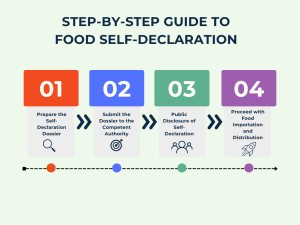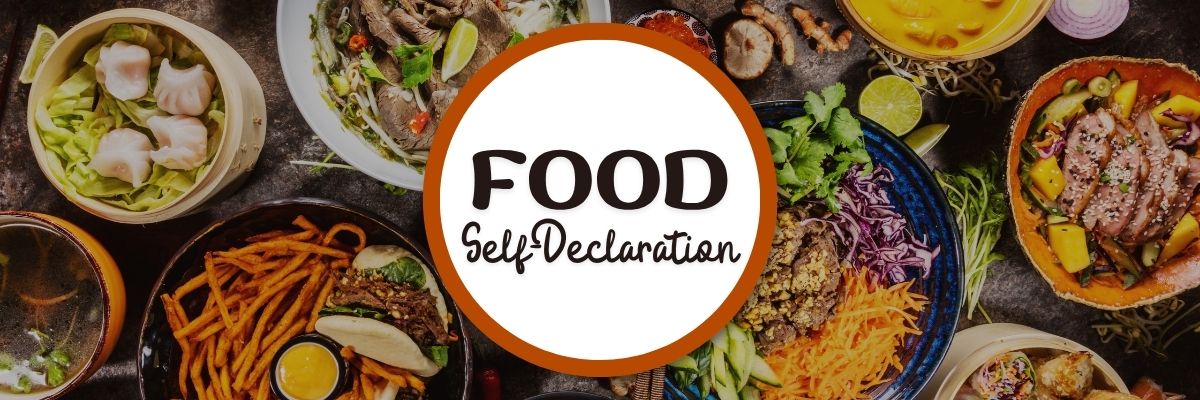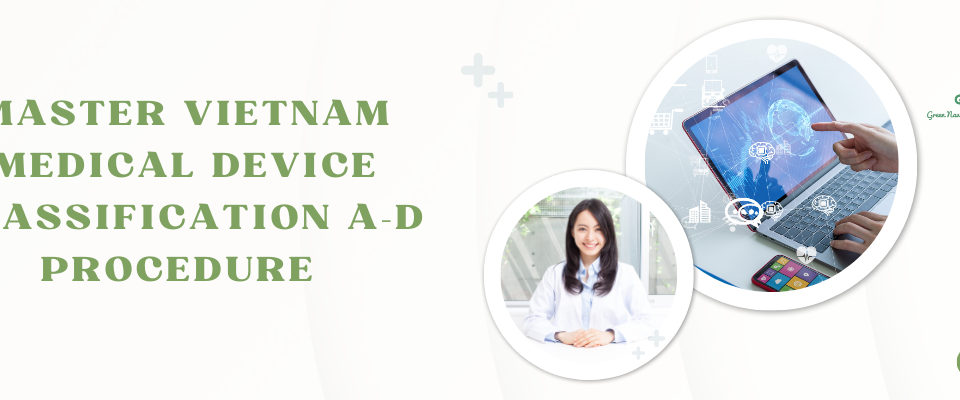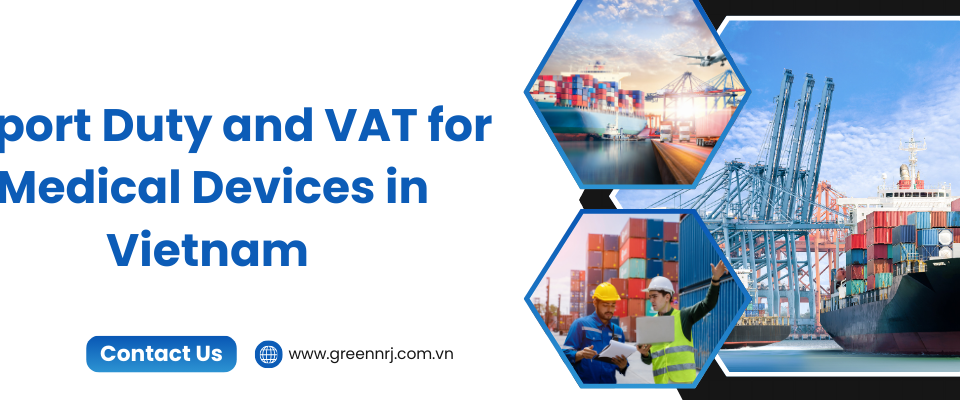- If you have any questions, please contact us!
- +84 965 624 065
- info@greennrj.com.vn

How to Effectively Import Whitening Cream into Vietnam in 2025: A Step-by-Step Guide for Global Brands
May 27, 2025
How to Import Wheat Flour into Vietnam in 2025: A Powerful Step-by-Step Guide
May 28, 2025Self-Declaration of Imported Food Products in Vietnam is a mandatory procedure for certain categories of food before they can be circulated in the Vietnamese market. Foreign enterprises and importers must understand and comply with Vietnam’s food import procedures, including labeling requirements and food product registration (product self-declaration). This article provides a complete guide on how to register imported food in Vietnam, the required documents for imported food declaration, and details on which foods need to go through self-declaration in Vietnam. By following the legal requirements under Vietnamese law, businesses can ensure smooth market entry and avoid regulatory penalties.
What is Food According to Vietnamese Law?
Under Article 2, Clause 1 of the Law on Food Safety No. 55/2010/QH12, food is legally defined as:
“Any product that people consume by eating or drinking, whether in raw, fresh, processed, or preserved forms. This definition excludes items such as cosmetics, tobacco, and substances used for medicinal purposes.”
This broad definition applies to both domestically produced and imported food products in Vietnam. Therefore, if you plan to register imported food products in Vietnam, you must ensure they meet this legal classification to proceed with food product registration or self-declaration procedures.
Moreover, imported food items must comply with other regulations, including food labeling requirements in Vietnam, safety standards, and documentation obligations before being distributed in the Vietnamese market.
Understanding how food is legally defined is the first step for businesses navigating food import procedures in Vietnam, especially for those unsure about which foods need to go through self-declaration and how to register imported food in Vietnam correctly.
What is Self-Declaration of Imported Food Products?
Self-Declaration of Imported Food Products in Vietnam (also known as “tự công bốsản phẩm”) is a legal process in which an importer or organization publicly declares that their food product complies with all relevant Vietnamese food safety regulations and standards. This process does not require pre-approval or product certification from the competent authority.
According to Decree No. 15/2018/NĐ-CP, the self-declaration mechanism was introduced to simplify food import procedures in Vietnam, replacing the older, more complicated product registration model. Instead of waiting for approvals, businesses only need to prepare the required documents for imported food declaration, submit them to the local authorities, and publish the declaration on their website or in public media.
This method is especially efficient for companies that want to register imported food products in Vietnam quickly while maintaining compliance with food labeling requirements in Vietnam and other legal provisions.
By understanding the self-declaration process, importers can navigate the Vietnamese market more smoothly and avoid legal pitfalls associated with non-compliant food distribution.
Legal Basis for Self-Declaration of Imported Food Products in Vietnam
The Self-Declaration of Imported Food Products in Vietnam is based on a robust legal framework that ensures food safety and regulatory compliance. Importers and foreign enterprises must adhere to the following legal documents when conducting self-declaration:
-
Law on Food Safety No. 55/2010/QH12 (enacted on June 17, 2010): Establishes general principles on food hygiene, safety, and quality applicable to all food products, including imported ones.
-
Decree No. 15/2018/NĐ-CP (dated February 2, 2018): Provides detailed guidance on implementing the Law on Food Safety and introduces a simplified food import procedure via the self-declaration mechanism.
-
Circular No. 24/2019/TT-BYT (dated August 30, 2019): Offers instructions for the state management of imported food safety, including documentation and inspection requirements.
Scope of Application: Which Foods Need to Go Through Self-Declaration in Vietnam?
According to Article 4 of Decree 15/2018/NĐ-CP, the following imported food products must go through self-declaration before distribution in the Vietnamese market:
-
Pre-packaged processed foods, excluding products subject to product declaration registration
-
Food additives and processing aids with multiple functions or uses
-
Food containers and packaging materials that are in direct contact with food
Important Note: Not all products are eligible for self-declaration. The following categories are not allowed under this procedure and must follow food product declaration registration in Vietnam instead:
-
Health supplements / dietary supplements (often referred to as functional foods)
-
Medical nutrition foods
-
Foods for special dietary uses
- Products for children under 36 months of age
These categories must be registered via the product declaration route, requiring prior approval from Vietnamese authorities.
Requirements for Self-Declaration
To legally proceed with the Self-Declaration of Imported Food Products in Vietnam, importers must meet the following conditions as per the current legal framework:
-
Be a legally registered business in Vietnam: Only entities with a valid business registration in Vietnam are allowed to submit self-declaration dossiers. This is a prerequisite for any step in food product registration in Vietnam.
-
Ensure compliance with Vietnamese food safety standards: The product must meet relevant national technical regulations (QCVNs) or applicable food safety standards.
-
Provide valid test results and documentation: Importers must conduct quality and safety testing at a designated or accredited laboratory and compile the required documents for imported food declaration.
Meeting these requirements is essential to complete food import procedures in Vietnam and avoid delays, rejections, or penalties.
Required Documents for Self-Declaration
Under Article 5 of Decree No. 15/2018/NĐ-CP, a complete dossier to register imported food products in Vietnam through self-declaration must include the following documents:
-
Self-Declaration Form
– Prepared in accordance with Form No. 1, Appendix I of Decree 15/2018/NĐ-CP. -
Food Safety Testing Result
– Issued within 12 months prior to submission.
– Conducted by a laboratory that is either:-
Designated by Vietnamese authorities or
-
Accredited to ISO 17025 standards.
– Testing must follow relevant Vietnamese national technical regulations.
-
-
Product Information & Label Sample
– Includes:-
Full ingredient list
-
Intended use and usage instructions
-
Shelf life and storage conditions
-
Product labeling, compliant with food labeling requirements in Vietnam
-
-
(Optional) Certificate of Free Sale (CFS)
– Issued by a competent authority in the exporting country
– Used to prove that the product is legally circulated in the country of origin
By preparing these documents correctly, businesses can efficiently proceed with the self-declaration process for imported food products and ensure full compliance with Vietnamese regulations.
How to Register Imported Food in Vietnam via Self-Declaration: Step-by-Step Guide

Completing the Self-Declaration of Imported Food Products is a key step in Vietnam’s food import procedures. Unlike the traditional product declaration registration process, this simplified model allows companies to quickly declare product compliance and move forward with importation.
Step 1: Prepare the Self-Declaration Dossier
To begin, importers must gather and organize all required documents for imported food declaration, including:
-
Self-Declaration Form (Form No.1 – Appendix I, Decree 15/2018/NĐ-CP)
-
Food safety test results
-
Product label and technical details
-
Optional Certificate of Free Sale (CFS)
Proper preparation of these documents is essential to successfully register imported food products in Vietnam.
Step 2: Submit the Dossier to the Competent Authority
Once the dossier is complete, it must be submitted to one of the following:
-
The Food Safety Management Authority at the provincial-level where the business is registered (e.g., Department of Health or Provincial Food Safety Board)
-
Online, through the Vietnam National Single Window (NSW) or other authorized portals
Important Note: No approval, certificate, or feedback is issued after submission. The purpose is solely for regulatory inspection and archiving.
Step 3: Public Disclosure of Self-Declaration
After submission, the business is required to publicly disclose the self-declaration to ensure transparency. Choose one of the following:
-
Publish on the company’s official website
-
Announce in mass media (e.g., printed or online newspapers)
-
Display at the company’s physical location where it is clearly visible
This step helps fulfill legal obligations for food transparency and compliance.
Step 4: Proceed with Food Importation and Distribution
Once both submission and public disclosure are complete, the importer is allowed to:
-
Import the declared food product into Vietnam
-
Distribute and sell the product without waiting for further approval or confirmation from authorities
This efficient process benefits enterprises by reducing waiting times and simplifying how to register imported food in Vietnam.
Post-Submission Responsibilities for Imported Food Self-Declaration
After completing the Self-Declaration of Imported Food Products in Vietnam, businesses are legally obligated to maintain ongoing compliance. The following responsibilities must be strictly followed:
-
Maintain records: Keep the original self-declaration documents and food safety test results readily available for inspection by authorities.
-
Ensure product consistency: Each imported batch must match the declared product specifications, including ingredients, shelf life, labeling, and usage instructions.
-
Notify authorities of any changes: If there are modifications to the product name, ingredient list, usage, or labeling, the importer must re-submit the self-declaration with updated information.
These post-submission duties are essential for maintaining compliance under Vietnam’s food import procedures and food safety regulations.
Penalties for Non-Compliance with Food Self-Declaration in Vietnam
Failure to comply with the self-declaration process for imported food products can result in serious legal and financial consequences. According to Decree No. 115/2018/NĐ-CP on administrative violations in food safety, penalties may include:
-
Administrative fines for missing, incorrect, or fraudulent declarations
-
Mandatory product recalls for unsafe or misdeclared food products
-
Suspension of import activities or distribution rights
-
Revocation of business licenses or import permits in severe cases
To avoid these penalties, importers must ensure accurate, timely, and complete documentation when they register imported food products in Vietnam.
Conclusion: Why Self-Declaration Matters for Food Importers in Vietnam
The Self-Declaration of Imported Food Products offers a faster, more flexible pathway to enter the Vietnamese market—but it is also a legally binding obligation. By complying with the Law on Food Safety, Decree 15/2018/NĐ-CP, and related regulations, businesses can:
-
Reduce import delays
-
Avoid legal risks and penalties
-
Build trust with consumers and regulators
Whether you are a new entrant or a seasoned importer, understanding and following Vietnam’s food import procedures is crucial for long-term success.
📞 Need assistance with your food product self-declaration or documentation?
Contact Green NRJ – your trusted regulatory partner in Vietnam – for expert support and smooth market entry.



